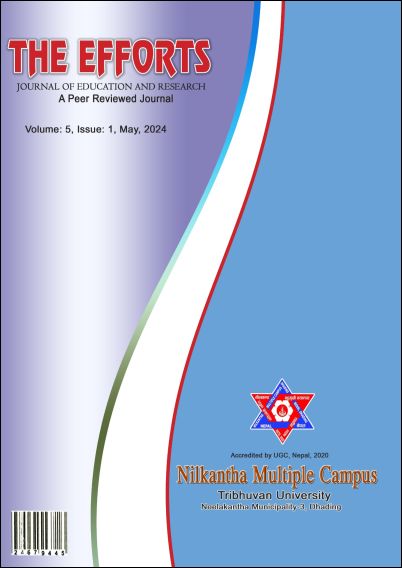Equitable Pedagogical Practices in Learning Mathematics at Secondary Schools in Nepal
DOI:
https://doi.org/10.3126/ejer.v5i1.65630Keywords:
equitable pedagogy in mathematics, interpretive inquiry, diversity, culturally responsiveAbstract
The central focus of this study is to explore equitable pedagogical practices in learning mathematics in diversified learners’ mathematics classrooms. This study focused on investigating the challenges faced by mathematics teachers to conduct equitable pedagogical practices in learning mathematics in mathematics classrooms and exploring the possible ways to promote equitable pedagogical practices in learning mathematics. An interpretive critical theory paradigm was employed for collecting, analysing, and interpreting data in an iterative process. Qualitative narratives were collected through in-depth interviews, focus group discussions (FGD), and classroom observations of which five secondary-level mathematics teachers of Dhading were observed. Through multi-layered theme analysis and interpretation, the study produced five emergent challenges: linguistic issues, classroom diversity, the dominance of banking pedagogy, student absenteeism, school environment, and socioeconomic position. Moreover, the study showed eight different ways to promote equitable pedagogical practices in learning mathematics: providing additional support for marginalized students, using multi-methods of mathematics teaching, promoting peer and group work, individual treatment, motivational counseling, teaching mathematics relating to daily life, promoting collaborative learning and cooperative teaching, and promoting culturally responsive teaching.
Downloads
Downloads
Published
How to Cite
Issue
Section
License
All rights reserved. No part of this journal may be reproduced in any form or by any electronic means, including information storage and retrieval system, without prior permission from the publisher.




